Ugandans to benefit from British Council's skills training, education delivery and employability programme
“Education is at the heart of the British Council’s global mission to build connections, understanding, and trust between the people of the UK and other countries. Uganda’s youthful demographic presents a great opportunity for quality education and skills training which can unlock potential in young people.”
L-R: Mary Frances Atima, head of Directorate of Educational Standards, MoES representing the P.S, Lucy Pearson, Regional Director British Council, Sub Saharan Africa (SSA), Millicent Mugabi, Country Director, British Council , Caroline Kiconco, PM TVET and Loy Muhwezi, Commissioner TVET, MoES launching the British Council Going Global partnerships TVET program in Uganda. (Photo by Mpalanyi Ssentongo)
____________________
The British Council Uganda, in partnership with the education ministry, has unveiled two programmes designed to transform skills training, education delivery and employability for Uganda’s youthful population.
The launch of these programmes took place at a high-level stakeholder engagement at Onomo Hotel in Kampala on August 19, 2025, where the handover of the National Teacher Qualification Framework (NTQF) and Competency-Based Curriculum (CBC) teacher support videos to the ministry took place.
The NTQF and CBC resources are expected to set new standards for teacher professionalisation and support the ongoing curriculum reforms across the country.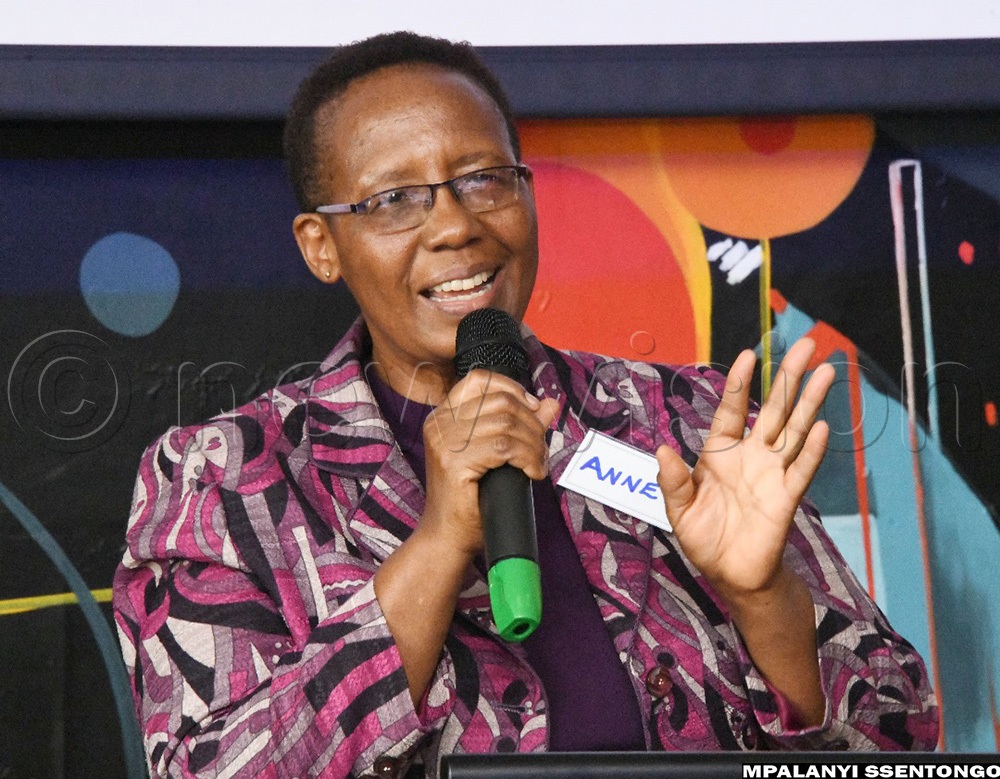
Dr Annet Kajura, Commissioner TET/D speaking during the launch of two programmes designed to transform skills training, education delivery and employability. (Photo by Mpalanyi Ssentongo)
The event was the launch of the technical and vocational education and training (TVET) programme, introduced under the British Council’s Going Global Partnerships initiative, which seeks to align technical training with labour market demands, opening new pathways for young people to secure decent work.
Great opportunity for quality education
British Council sub-Saharan Africa region director Lucy Pearson underlined the organisation’s long-standing commitment to Uganda’s education sector.
“Education is at the heart of the British Council’s global mission to build connections, understanding, and trust between the people of the UK and other countries. Uganda’s youthful demographic presents a great opportunity for quality education and skills training which can unlock potential in young people,” she said.
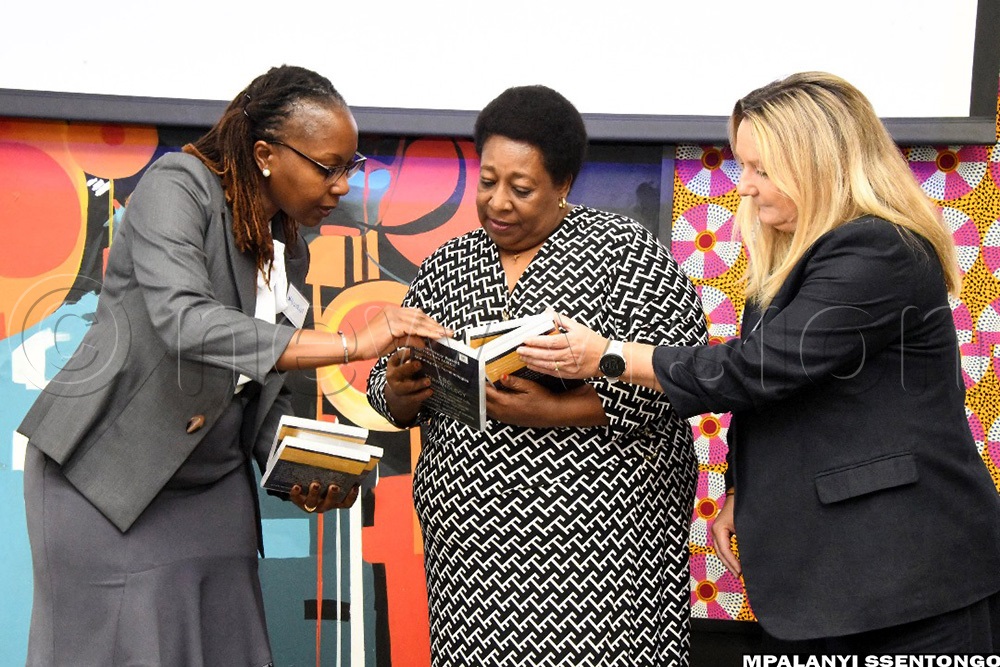
Mary Frances Atima, head of the Directorate of Educational Standards, MoES, (centre) receiving copies of the National Teacher Qualification Framework (NTQF) and support Video tapes for the new based curriculum (CBC) from Millicent Mugabi, Country Director, British Council (left) and Lucy Pearson, the Regional Director British Council, Sub Saharan Africa (SSA). (Photo by Mpalanyi Ssentongo)
Pearson praised Uganda’s commitment to educational reform through the competency-based curriculum and called the partnerships forged between government, development agencies, and the private sector a model for the region.
“Uganda is a priority country for us. We are here for the long haul, working with government and partners to shape an education system that is inclusive, resilient, and responsive to the aspirations of its people,” Pearson noted.
She highlighted the British Council’s history of supporting education in Uganda through teacher development, English language programmes, Commonwealth scholarships, and the strengthening of examination systems.
“The National Teacher Qualification Framework is a landmark moment for Uganda’s teacher professionalisation agenda, while the CBC teacher support videos are practical tools that can bring the curriculum to life in classrooms across the country,” Pearson added.
Addressing unemployment
Education ministry Directorate of Educational Standards head Mary Frances Atima, who represented ministry permanent secretary Dr Kedrace Turyagenda, welcomed the British Council’s contribution, describing TVET as a national priority critical to addressing youth unemployment and driving Uganda’s industrialisation.
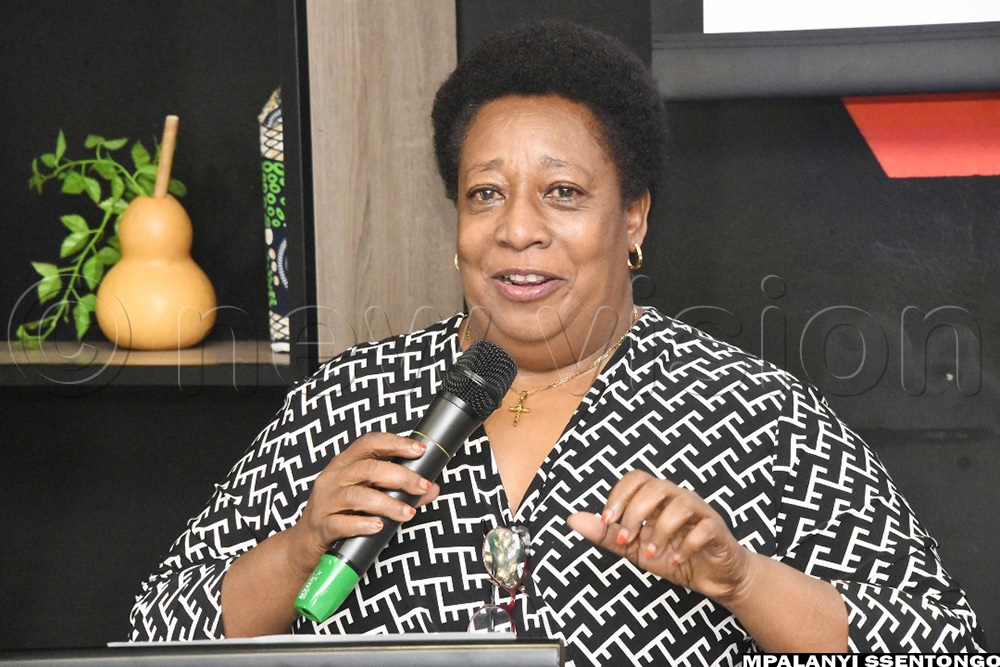
Education ministry Directorate of Educational Standards head Mary Frances Atima speaking during the launch of two programmes designed to transform skills training, education delivery and employability. (Photo by Mpalanyi Ssentongo)
“Through TVET, we are building strong foundations to close skills gaps and create employability pathways for young Ugandans,” she said.
Turyagenda noted that while the support materials and videos developed in partnership with the British Council are a step forward, a deeper mindset change among teachers and parents is still needed to fully leverage these reforms.
“There are still real challenges in curriculum delivery. Even at A-level, some teachers remain stuck to the past. We must combine technical resources with a mindset change if these reforms are to bear fruit,” she cautioned.
She also urged the sector to focus on amplifying success stories, noting that showcasing positive results could inspire more educators, parents, and learners to embrace the changes.
“The ministry remains committed to building a resilient, inclusive, and future-ready education system where no learner is left behind,” Turyagenda said.
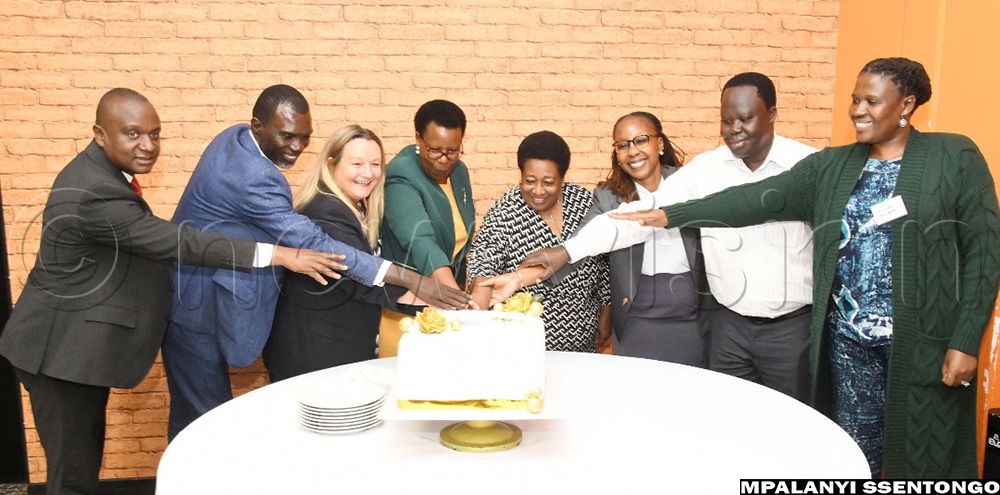
Celebrating and starting a new chapter
British Council country director Millicent Mugabi described the launch as both a celebration of past achievements and the beginning of a new chapter of collaboration.
“Education is not just about knowledge. It is about possibility. It is about equipping teachers with the confidence to inspire, supporting learners to unlock their potential, and ensuring systems are robust enough to meet today’s challenges while preparing for tomorrow,” she said.
Mugabi emphasised that partnerships remain central to the British Council’s work, especially in teachers’ training and curriculum development, to scholarship programmes and refugee education, which she said collaboration has been the driving force behind progress.
“We are proud to have contributed to the National Teacher Qualification Framework and to support the Competency-Based Curriculum. These milestones, achieved together with the ministry and partners, reflect our shared commitment to transforming education in Uganda,” she said.
Uganda’s population, one of the youngest in the world, presents both opportunities and challenges, and with an expanding workforce, the demand for relevant skills has never been greater.
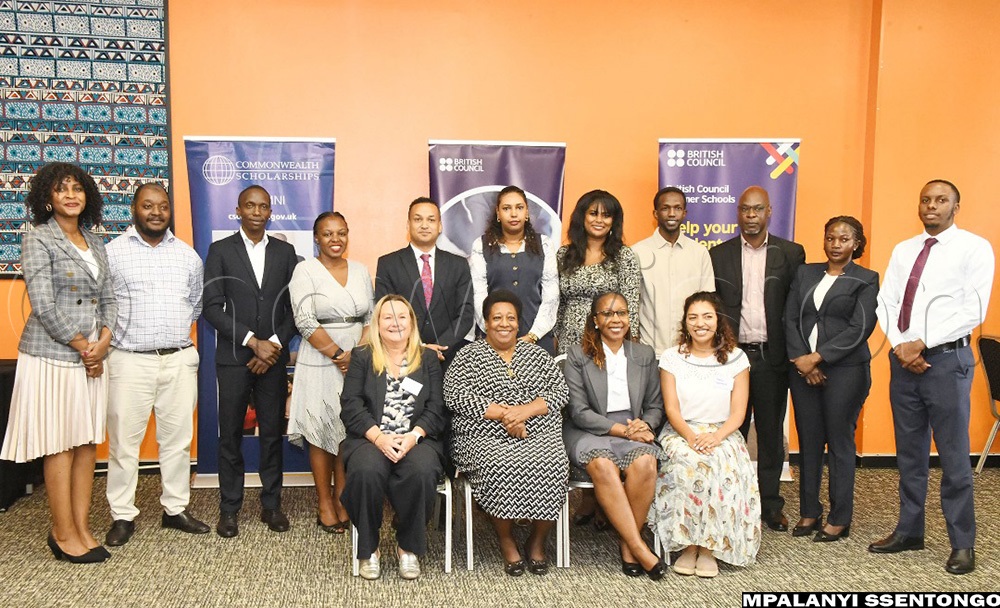
The TVET and LIT programmes are expected to directly respond to this demand by bridging the gap between education and employment, according to Caroline Kiconco, the programme manager for TVET.
Kiconco noted that by strengthening institutional capacity, promoting employer-led training and embedding innovation, the initiatives aim to prepare learners not only for Uganda’s job market but also for regional and global opportunities.
The British Council also reaffirmed its support for refugee education through the Language for Resilience programme, which helps teachers address language barriers among refugee learners.
Uganda is home to 1.7 million refugees, and this initiative seeks to promote social inclusion and cohesion through language education.
The launch attracted senior government officials, representatives from the Uganda National Examinations Board (UNEB) and National Curriculum Development Centre (NCDC), Commonwealth scholarship alumni, and development partners, including the Mastercard Foundation.